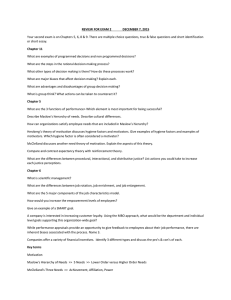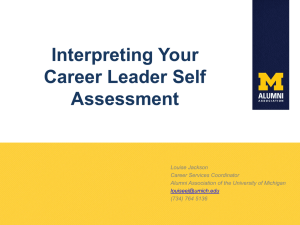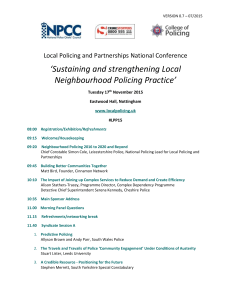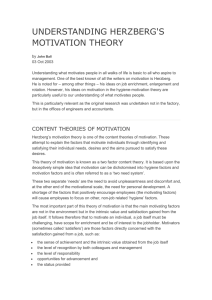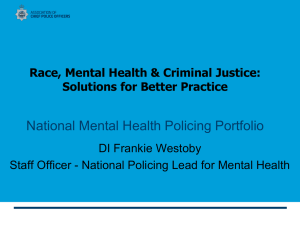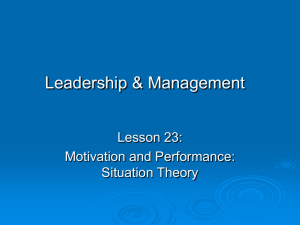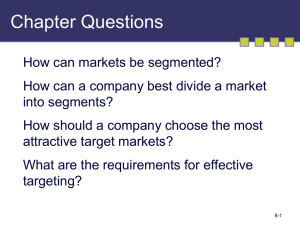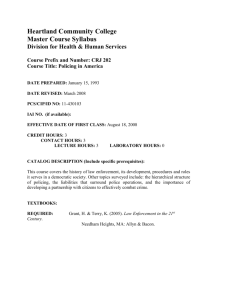Law Enforcement Organization and Administration
advertisement
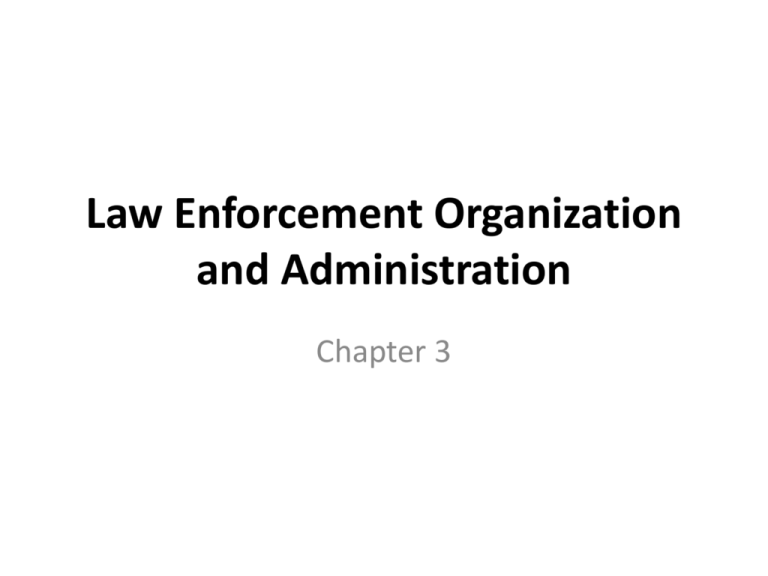
Law Enforcement Organization and Administration Chapter 3 LEADERSHIP • Leadership is the ability to get things done under the right circumstances. Proactive Leadership • Anticipate day to day events • Do not wait to for events to reach them, they plan for events • Form a team that is flexible enough to seek a wide variety of solutions to everyday problems of police management Competencies Needed For The Exercise of Leadership • • • • • Authority Talent Experience Ethics Training and Education Authority Charismatic Authority is an example of leadership being exercised by the person and not by an office. Legitimate Authority has three major bases 1. Rational grounds 2. Traditional grounds 3. Charismatic grounds Talent • Intelligence and grasp of political issues and communications skills. Experience • Need a blend of management and operational experience – Progress Experience – Changing Assignments Ethics • Doing the right thing every day Training and Education • On going experiences – Must develop specific management skills • • • • • • • Motivation of personnel Budgeting Strategic and short term planning Marketing services Emergency command situations Legal issues Planning for upgrading police technology Management Styles • Effective Leadership – includes the principles of being proactive, setting goals, putting first things first, thinking win-win, communicating with people, synergizing and sharpening the saw Managing in Chaos • Stay calm and take care of your people. • Keep or initiate communications. • Get back to business as a soon a possible • Have an incident command plan • Be prepared to retreat • Deal with post event stress and physical conditions. Digital Nervous System • Apply 12 business practices that include – Email – Creating digital teams – Improve quality – Deal with client complaints – Trade information between agencies – Save meeting for important items instead of routine matters Emotional Intelligence • The need for administrators to have selfawareness, self regulation, motivation, empathy and social skills. – Applies to team building, especially with community policing. Total Quality Management • Although dated this has an impact on community policing and improving services. Those that apply to policing: – – – – – – Adoption of the quality philosophy for all areas Improving work processes Awarding contracts based on quality Paying attention to training Letting people ask questions Breaking down communication barriers between units – Reliance on hierarchy Reengineering • Re-define jobs and tasks • Manager acts as the coach in defining what is or is not important • Theory often linked to downsizing and layoffs. Katz’s Three Skills Approach • • • • Need for human, technical and conceptual Managers must tolerate lots of ambiguity Managers must have a sense of the big picture In daily operations, these three skills are brought together. Maslow’s Need Hierarchy • This classic theory involving various employee needs has five levels: – Security – have some sense of security in the position – Social – relationship with peers – Self-esteem – importance gained from being the position for self; importance viewed from others – Autonomy – the need for independent thought and action; the need to have a say in daily operations Maslow (cont.) • Self-actualization – the feeling of selffulfillment by being in a certain position, the great feeling of worthwhile accomplishment. • Basic needs must be met before employee can achieve personal growth • Police administrators need to be respected and given authority Herzberg • Hygiene/Motivators Approach to Job Satisfaction – Review of job satisfaction found that there are hygiene factors and motivators – Hygiene factors are general work rules and work conditions – Motivators are those items that contribute to employee growth, personal growth, recognition, personal achievement – Motivators are important for employee growth McGregor’s Theory X and Theory y • • • • • • • Traditional v Humanist-Participatory Role of management is same for both View of People is different Direction v Motivation Theory centers around the need for control These are ideal typologies Most organizations have a bit of both types Theory Z and Police Management • Guarantee of lifetime employment • Career develops with different jobs Blake and Mouton • Managerial Grid – A classic theory that conceptualizes management styles with concern for production – Concept is used for organizational training in order to create teams and deal with problems.
